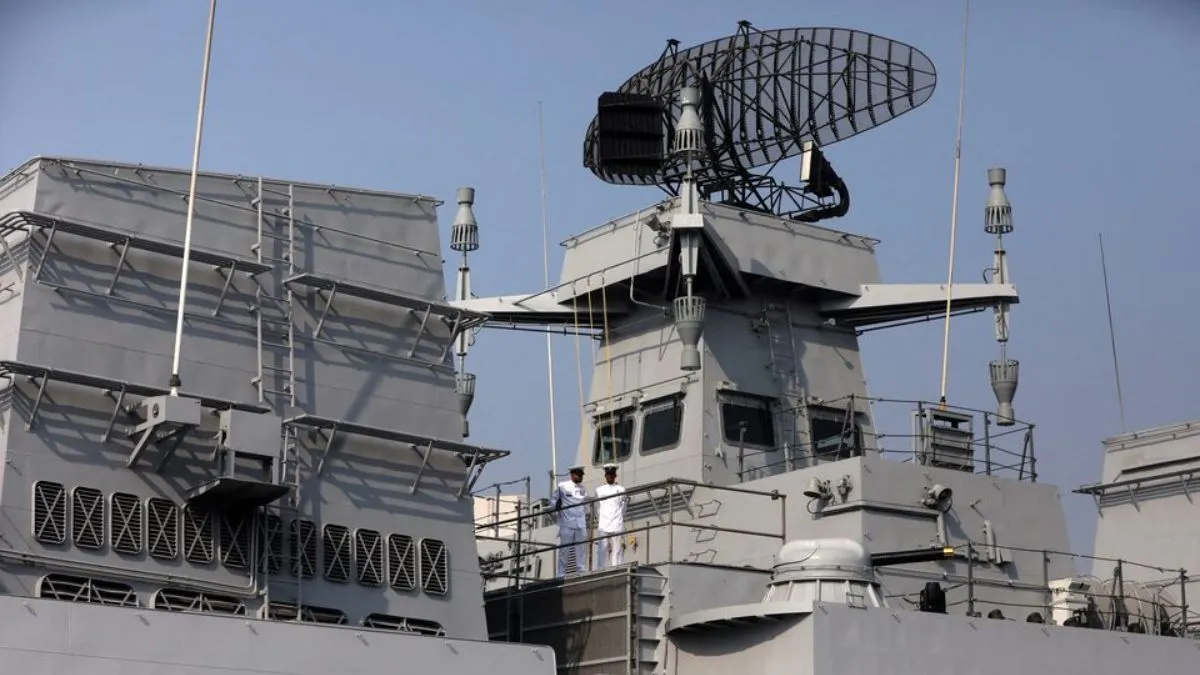- By Supratik Das
- Fri, 02 May 2025 11:17 AM (IST)
- Source:JND
Amid ongoing tensions with Pakistan, the United States has approved a foreign military sale worth USD 131 million to India. The pact is designed to improve Indo-Pacific maritime domain awareness. The Defence Security Cooperation Agency (DSCA) of the US Department of Defense confirmed the clearance on Wednesday. The sale comprises the SeaVision maritime domain awareness software, advanced training modules, and technical support services. Even though the US military sale fits into the Indo-Pacific strategy, it has significant implications for India's regional defense posture, specifically in terms of ongoing tensions with Pakistan.
On X (formerly Twitter), the US Department of State stated that “State Dept authorises a Foreign Military Sales (FMS) case for India to purchase Indo-Pacific Maritime Domain Awareness software and related equipment for an estimated cost of $131 million.” The Department of State noted that the decision promotes United States foreign policy and national security interests by reinforcing the strategic relationship with India.
.@StateDept 🇺🇸 authorizes a Foreign Military Sales #FMS case for 🇮🇳 #India to purchase Indo-Pacific Maritime Domain Awareness software and related equipment for an estimated cost of $131 million. #FMSUpdate - https://t.co/mtIn77bB0r pic.twitter.com/KymVetlmt0
— Political-Military Affairs, US Dept of State (@StateDeptPM) April 30, 2025
This deal will enhance India’s maritime domain awareness, improve surveillance capabilities, and expand real-time analytics and threat detection in coastal areas , especially amidst growing concerns over regional maritime security.
As per the DSCA, the government of India has asked for the purchase of:
• SeaVision software and software upgrades
• Technical assistance by Technical Assistance Field Team (TAFT)
• Remote software and analytical support
• Access to SeaVision documentation
• Logistics and program support
Impact on India-Pakistan Dynamics
•Enhanced Maritime Surveillance:
SeaVision will position India to improve surveillance of ships, naval ships, and emerging threats in real time across the Indian Ocean and Arabian Sea—the regions most pivotal to India-Pakistan maritime activity.
Also read: Global Military Spending Hits Record 2.7 Trillion USD: Where Do India And Pakistan Stand?
•Tactical and Strategic Advantage
The software will enable India to track suspect vessel movement, potential routes for smuggling, or secret naval deployment by competitors, providing India with a clear early warning lead in times of war or crisis.
•Zero Threat to Regional Military Balance:
The DSCA explained that the agreement will not change the military equilibrium in South Asia but will enhance India's capabilities to contain existing and emerging threats, specifically in maritime areas of interest.

